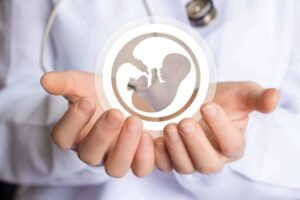- Home
- Treatment
- Our Doctors
- Our Hospitals
- Apollo Hospitals, Greams Road, Chennai
- Fortis Memorial Research Institute, Gurgaon
- Manipal Hospitals Dwarka, Delhi
- Max Super Speciality Hospital, New Delhi
- Sir Ganga Ram Hospital, New Delhi
- Fortis Escorts Hospital New Delhi
- BLK Super Specialty Hospital New Delhi
- Indraprastha Apollo Hospital New Delhi
- Medanta hospital gurgaon
- Sanar International Hospital
- Artemis hospital gurgaon
- CK Birla hospital gurgaon
- Services
- About us
- Review
- Contact us
FERTILITY

Fertility refers to the natural capacity of an organism to produce offspring or seeds, ensuring the continuation of its species. In human context, fertility primarily pertains to the ability of individuals or couples to conceive and bear children. It is a complex and multifaceted aspect of reproductive health that is influenced by various biological, environmental, and lifestyle factors.
Contact Us
Fertility, in the context of human biology, refers to the ability of an individual or a couple to conceive a child through natural means. It is a complex interplay of various physiological, environmental, and lifestyle factors that influence reproductive health. Both men and women contribute to fertility, with each gender playing a crucial role in the conception process.
In women, fertility is primarily associated with the menstrual cycle and ovulation. The menstrual cycle, controlled by a delicate balance of hormones, prepares the uterus for potential pregnancy each month. Ovulation, the release of a mature egg from the ovary, marks the peak of fertility in the menstrual cycle. Timing intercourse around ovulation is crucial for maximizing the chances of conception. However, various factors such as age, hormonal imbalances, polycystic ovary syndrome (PCOS), endometriosis, and lifestyle habits like smoking and excessive alcohol consumption can affect female fertility.
Male fertility, on the other hand, depends on the quantity and quality of sperm produced. Factors such as sperm count, motility (ability to move), and morphology (shape and size) are essential determinants of male fertility. Various factors, including genetics, hormonal imbalances, lifestyle choices (such as smoking, excessive alcohol consumption, and drug use), exposure to environmental toxins, and certain medical conditions like varicocele, can influence male fertility.
In recent decades, there has been a growing concern over declining fertility rates in many parts of the world. Several factors contribute to this trend, including delayed childbearing due to career pursuits and educational aspirations, environmental pollutants, sedentary lifestyles, obesity, stress, and the increasing prevalence of conditions such as PCOS and endometriosis.
Advancements in reproductive medicine have offered solutions to individuals and couples facing fertility challenges. Assisted reproductive technologies (ART), such as in vitro fertilization (IVF), intracytoplasmic sperm injection (ICSI), and gamete intrafallopian transfer (GIFT), have enabled many individuals to achieve pregnancy despite infertility issues. These technologies have revolutionized the field of reproductive medicine, providing hope to countless couples struggling with infertility.
However, it’s essential to recognize that fertility is a multifaceted aspect of human health that extends beyond the ability to conceive. It encompasses physical, emotional, and social dimensions, impacting individuals and couples in profound ways. Infertility can lead to feelings of frustration, sadness, and inadequacy, often affecting mental well-being and relationships.
Moreover, discussions surrounding fertility often intersect with broader societal debates on family planning, reproductive rights, and access to healthcare. Addressing fertility-related issues requires a holistic approach that encompasses medical interventions, support services, education, and policies aimed at promoting reproductive health and well-being for all individuals.
In conclusion, fertility is a complex aspect of human biology that influences the ability to conceive and bear children. While advancements in medicine have provided solutions for many facing fertility challenges, addressing broader issues related to reproductive health and well-being remains essential for ensuring that individuals and couples can make informed choices and access the support they need.
